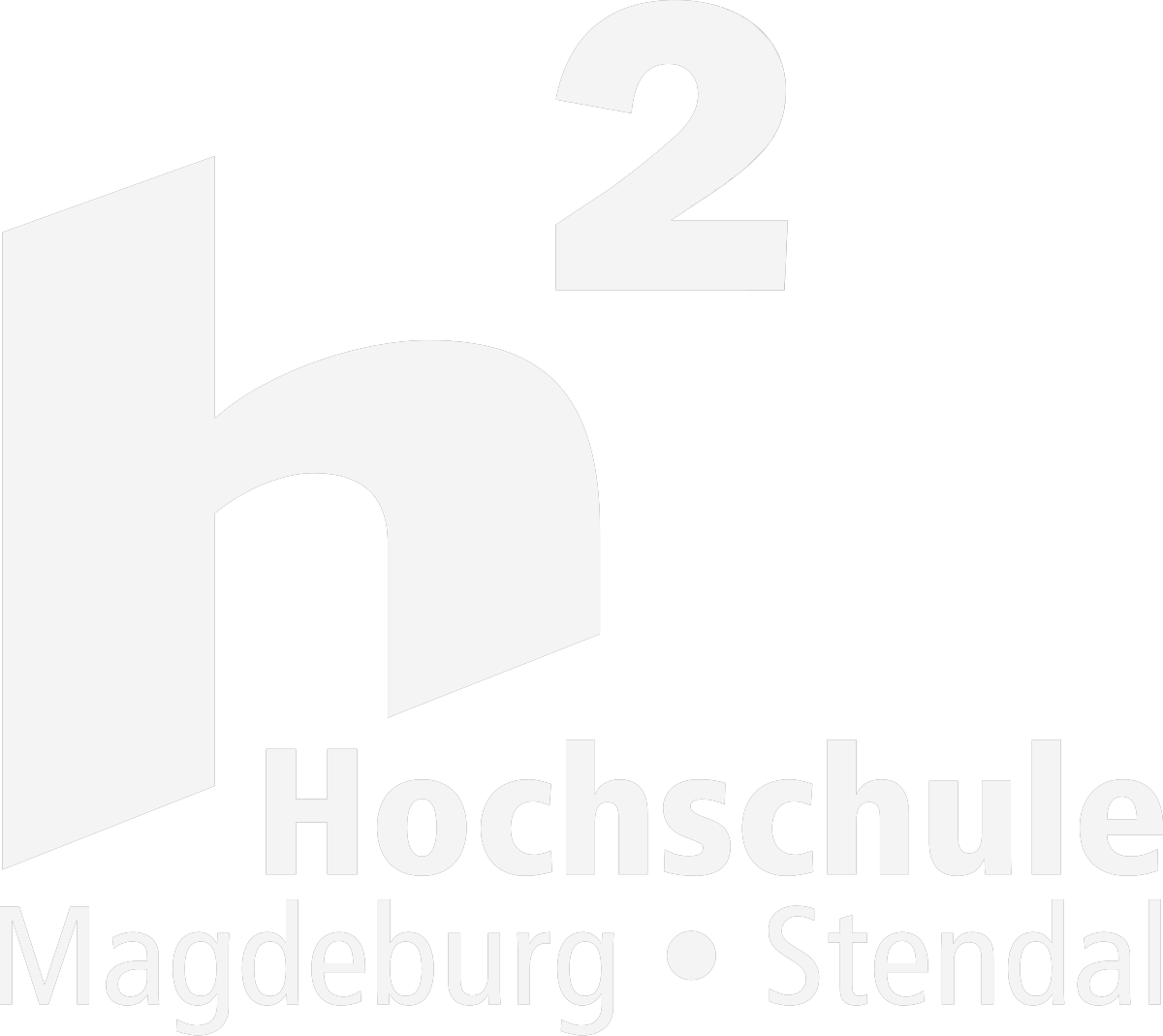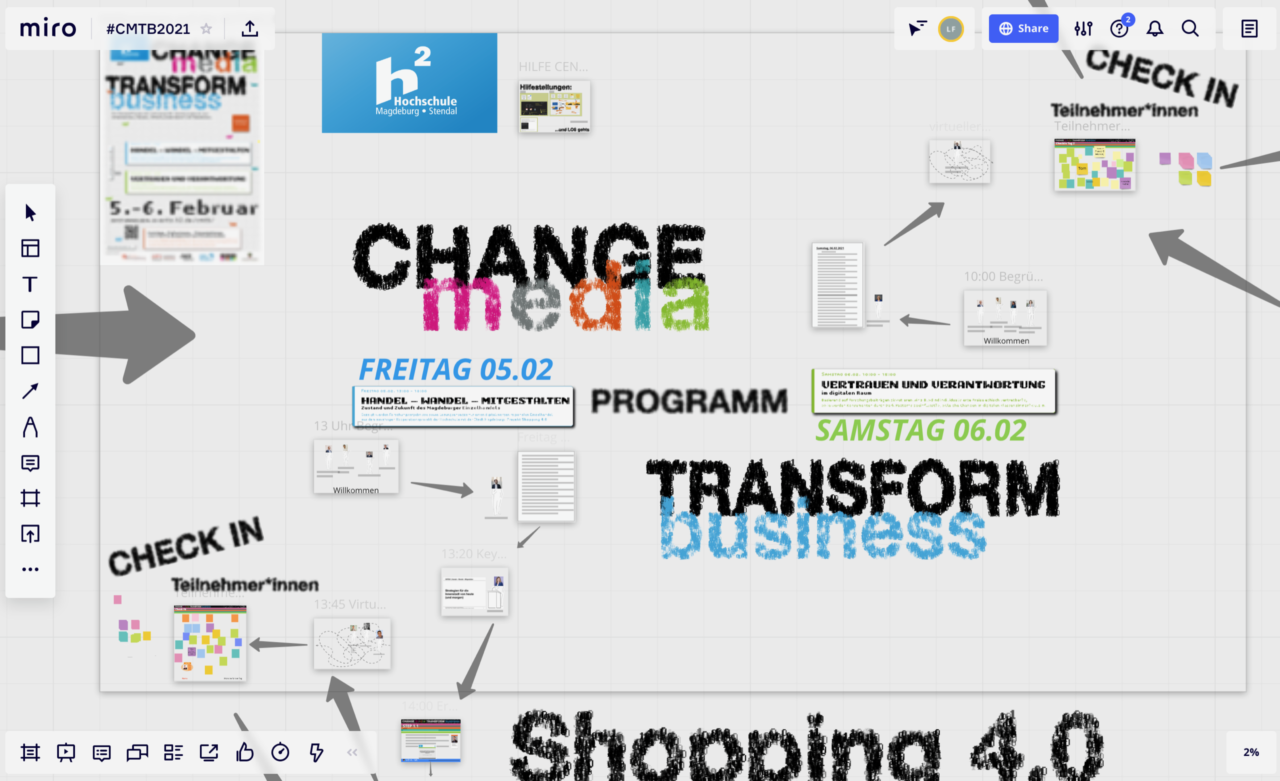Since 2020, the continuing education programs Cross Media and Digital Business Management at Magdeburg-Stendal University of Applied Sciences have organized the symposium “Cross Media – Transform Business” – a conference that addresses the issues of digital business and management. This year’ s conference on February 5 and 6, 2021, was held under the motto “Commerce – Change – SMEs: Entrepreneurial into the Future” and, due to the current Corona situation, took place digitally via Zoom in combination with the online whiteboard Miro. Here, participants* were able to interactively take part in online lectures, workshops, and presentations.
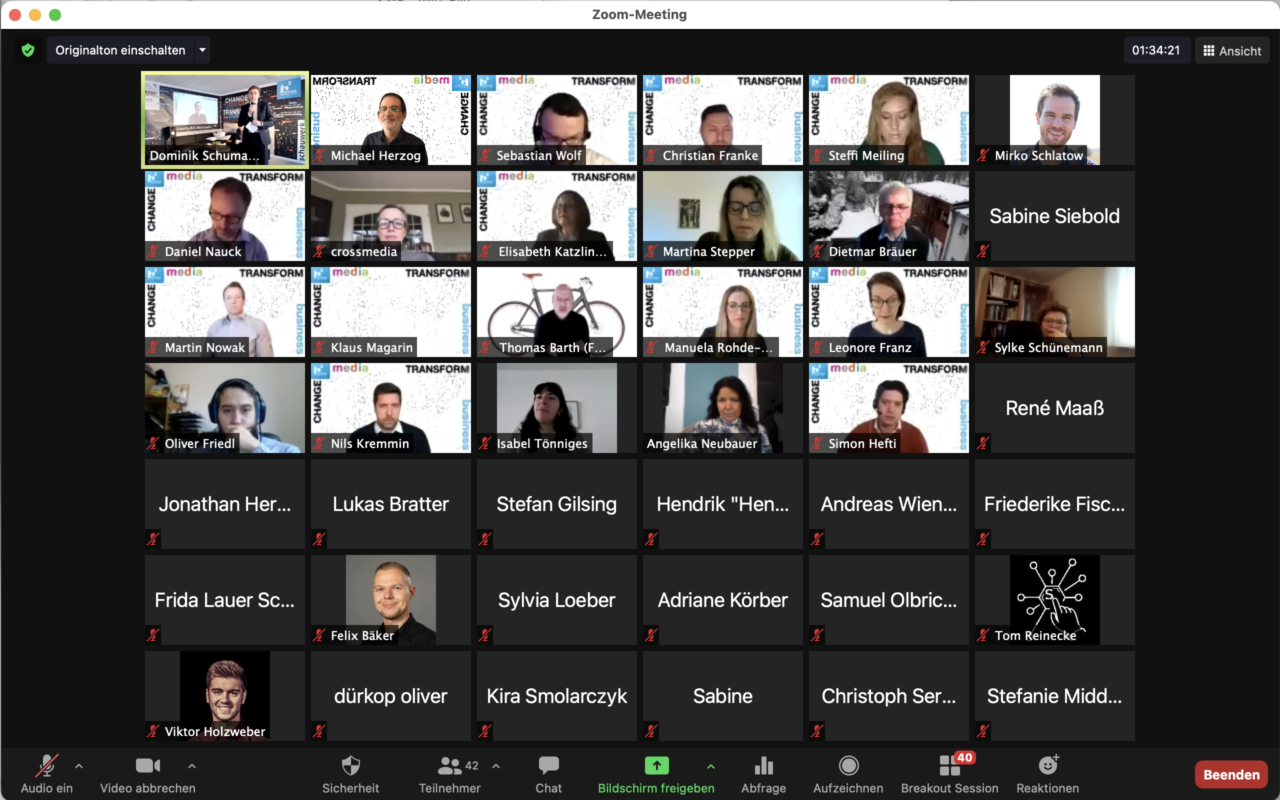
On Friday, Thomas Wünsch, State Secretary of Saxony-Anhalt and Stephan Papenbreer, City Councillor of Magdeburg opened the two-day participatory event with a welcoming speech. In keeping with the motto “Trade – Change – SMEs”, the keynote speech by Prof. Dr. Martina Stepper from the Technical University of Kaiserslautern introduced the topic. She presented the participants* with strategies for the city center of today (and tomorrow), which are intended to increase the attractiveness of city centers so that they continue to be viewed and used as popular locations of cities in addition to a growing, location-independent e-commerce offering.
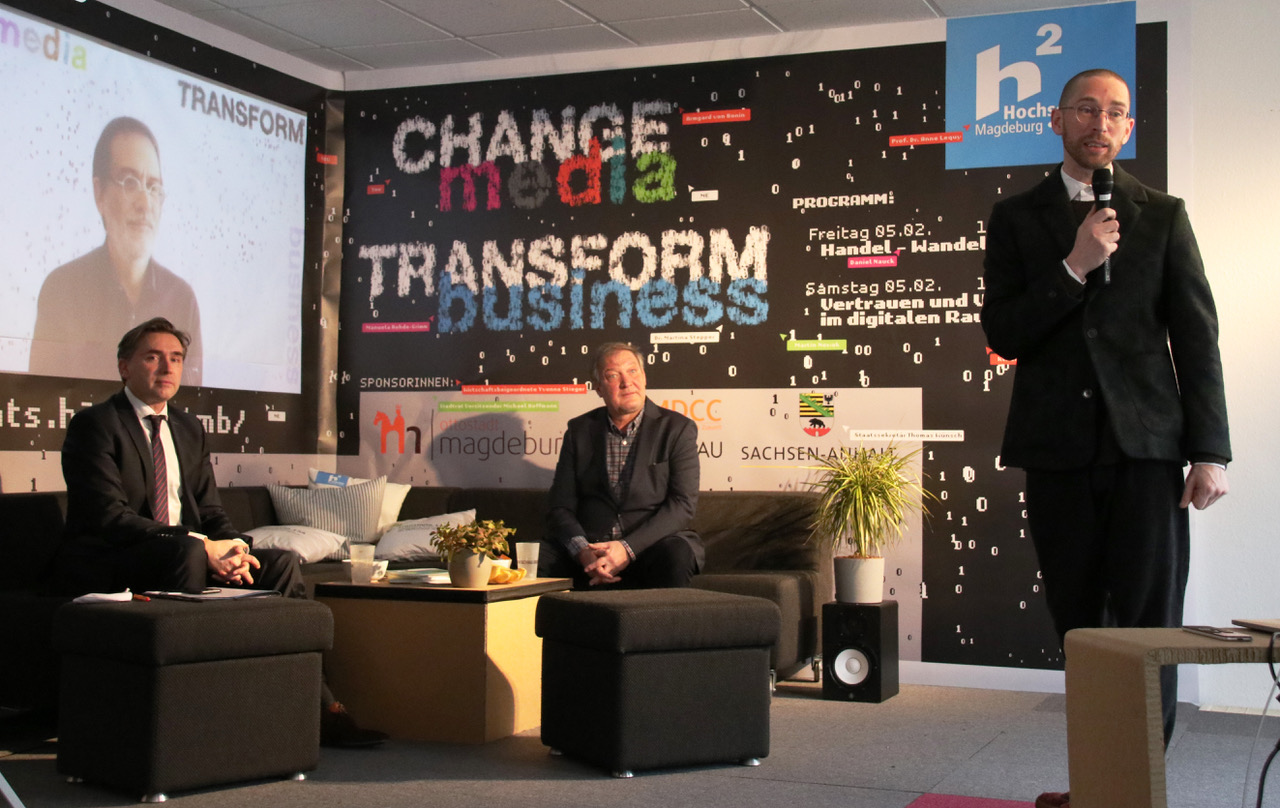
Daniel Nauck and Martin Nowack then presented the results from the teaching project “Shopping 4.0”. The project took place over the course of two semesters: In the summer semester 2020, students of the master’s degree programs Cross Media and Digital Business Management interviewed Magdeburger Händler^innen about their (digital) strategies in dealing with the first “Closedown” of the Corona pandemic. From these surveys, the students derived concrete, innovative marketing ideas in the following semester, which should promote attention to the Händler^innen and their offers. These were presented by the students in short presentations during the symposium. The ideas include, for example, apps and digital applications that clearly present the regional offers of female merchants (“shopping ping app”, “digital merchant map”). Other ideas combine already existing equipment in the city center with digital information, such as the “merchant benches”: benches in the city center are to be provided with QR codes that draw attention to the retail trade located in the outer city districts, so that offers in the city center also highlight the offers of female merchants in further surrounding areas.
.
A final highlight of the first day was the virtual Sofatalk, to which the Member of the City of Magdeburg for Economic Affairs, Sandra Yvonne Stieger and three Händler^innen from Saxony-Anhalt were invited. The talk guests exchanged animatedly about their needs and experiences of the lockdown and enabled interesting insights for all participants*.
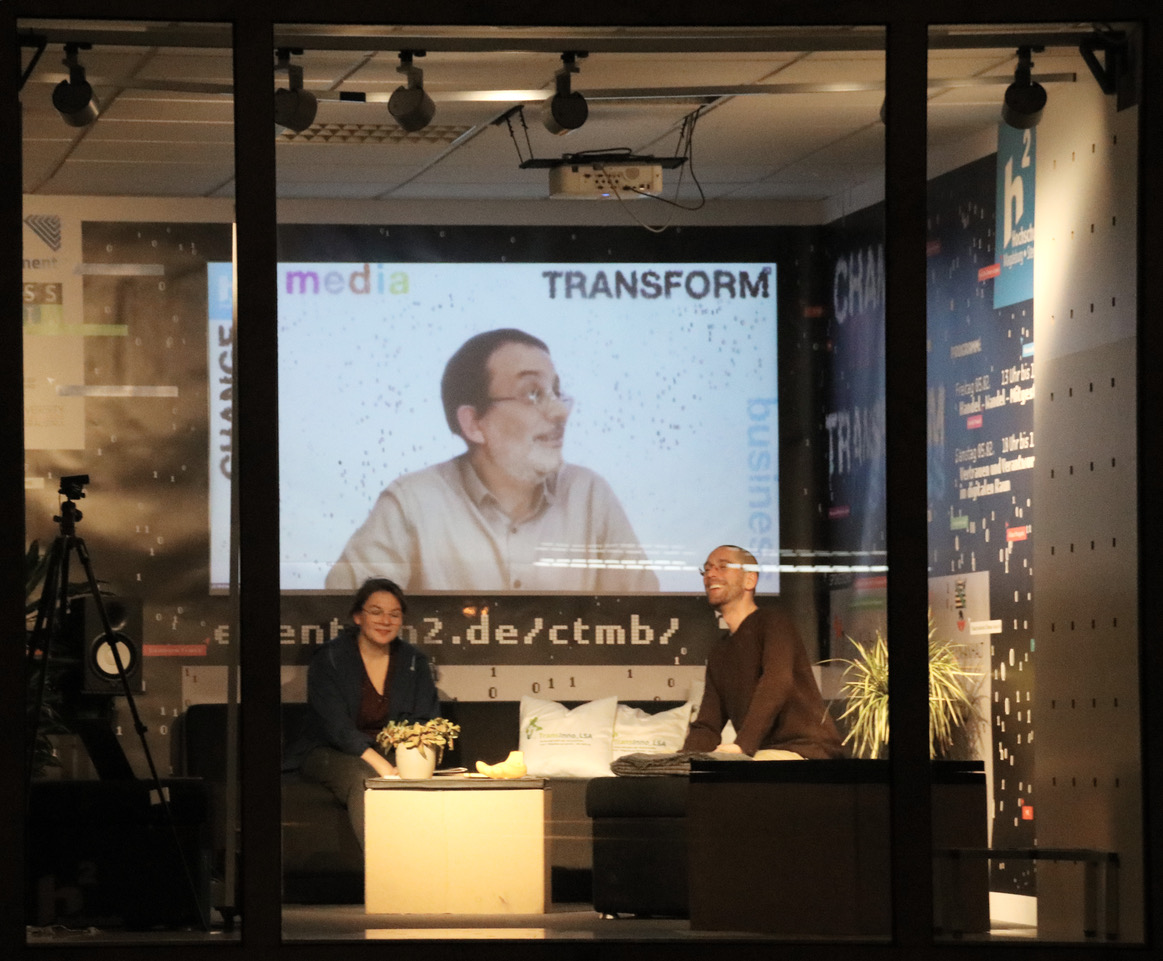
The second day of the symposium was opened by the rector of the Magdeburg-Stendal University of Applied Sciences Prof. Dr. Anne Lequy. Afterwards, Prof. Dr. Elisabeth Katzlinger-Felhofer from the partner university Johannes Kepler University in Linz explained the research project “Crossteaching”. In this project, students from the degree programs Cross Media, Digital Business Management and Risk Management worked in inter-university teams on scientific investigations into ethical issues in digital business. In addition to insights into consumers’ willingness to pay prices for sustainable fashion trends, the possible influence of Google Predictions on opinions and other exciting research contributions, students Sarah Krennhuber and Chris Seehafer reported on their research on “Mobile Payment”. Payment methods via smartphone are not yet widely used in Germany, Austria and Switzerland. Im Crossteaching-Projekt dealt the two with the concerns of Konsument^innen opposite mobile payment and compiled first Lösungsansätze, on the basis those banks the concerns of the Nutzer^innen to reduce could.
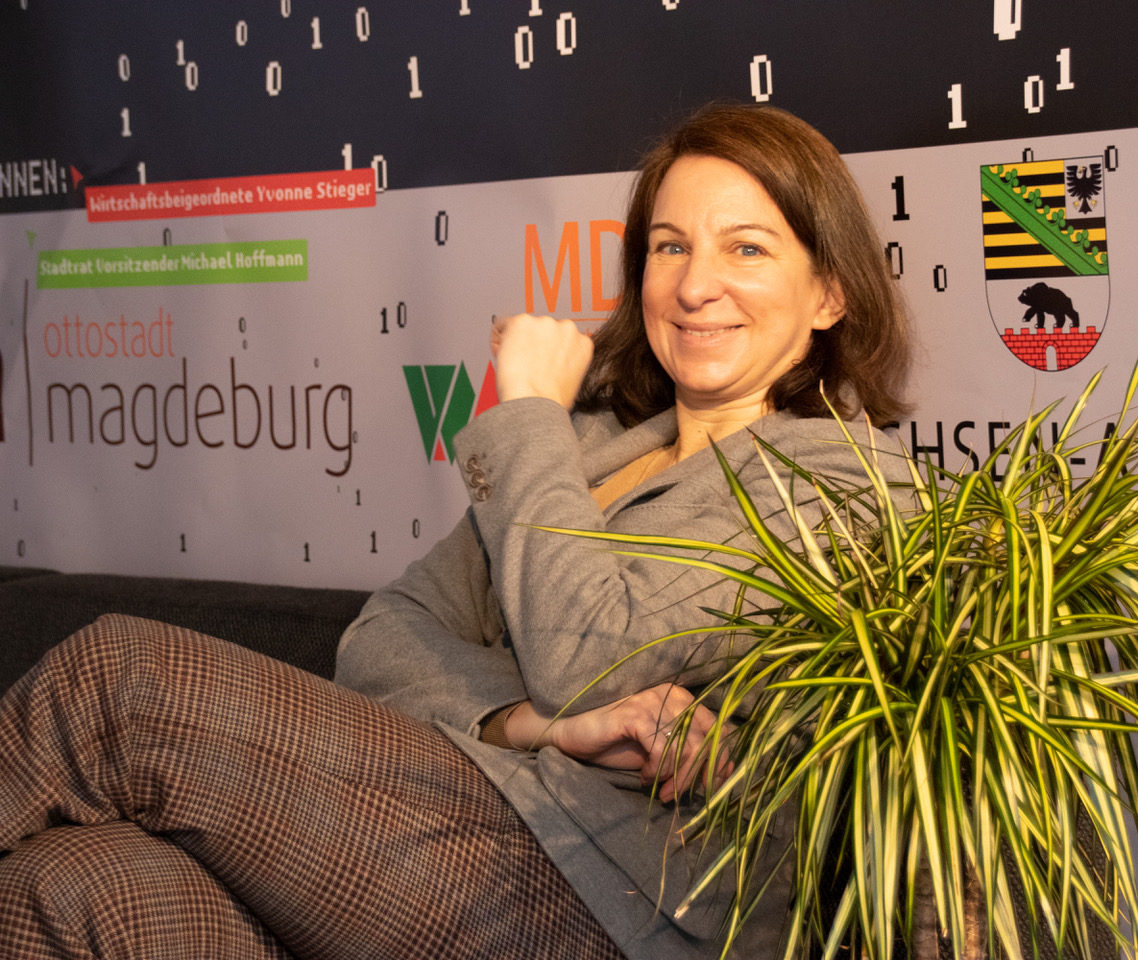
Finally, the organizers* of the “CMTB21” conference shared their experiences from the past semester with each other and with the students in another Sofatalk. The feedback on the symposium was consistently positive. The exchange between the practice and the students was very valuable and successful for both sides!


